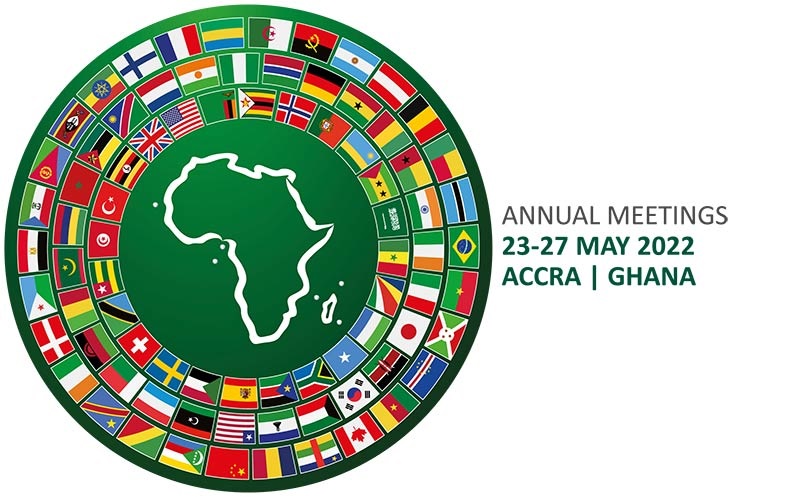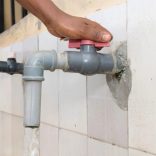Sudan preservationists struggle to restore country's shattered cultural treasures
AfDB’s 57th annual meetings to kick off in Accra on Monday

The African Development Bank (AfDB) Group’s 2022 Annual Meetings are being held from 23-27 May in Ghana’s capital city, Accra.
Returning to an in-person format after years of virtual meetings due to the coronavirus pandemic, the 57th round of the African Development Bank (AfDB) Group’s annual meetings will kick off this Monday (May 23) in the Ghanaian capital of Accra under the theme ‘Achieving Climate Resilience and a Just Energy Transition for Africa.”
The five-day meetings, which are scheduled to conclude on Friday, come amid challenging developments, as the world reels from the impacts of the Russian-Ukrainian conflict and its associated food basket shocks, rising food and energy prices, supply chain disruptions, and the still ongoing coronavirus pandemic.
The 57th Annual AfDb meetings will bring together Finance and Central Bank Governors of all the 54 Africa Countries to meet in Accra,Ghana from May 23 to 27 May 2022 for their statutory meetings of Governors of the Bank. @Joy997FM @akin_adesina @AfDB_Group @MoF_Ghana #afdbam2022 pic.twitter.com/7Qo2lYGL1j
— George Wiafe (@gwiafe) May 22, 2022
The bank also said that this year’s meetings will take into account Egypt’s hosting of the UN Conference of Parties on Climate Change (COP27) in Sharm El-Sheikh this November, as it will highlight Africa’s need for increased investment and other types of financing to accelerate climate adaptation efforts.
Egypt in an AfDB founding member and its second-largest regional shareholder.
Since 1974, the bank group has financed approximately 100 operations valued at $5.7 billion across the infrastructure, energy, and social sectors, mainly through extending loans to small- and medium-sized enterprises (SMEs).
Around 3,000 delegates and attendees are expected to participate in the meetings, chiefly to discuss key issues concerning the Africa’s development.
On Friday, the AfDB Group’s Board of Directors approved a facility worth $1.5 billion under the bank’s ‘African Emergency Food Production Facility Initiative’, which aims to help African countries avert the ongoing food crisis, as the continent is facing a shortage of at least 30 million metric tonnes of food, especially wheat, maize, and soybeans imported from Russia and Ukraine.
It also said that the African Emergency Food Production Facility will provide 20 million African smallholder farmers with certified seeds and that it will increase access to agricultural fertilisers, enabling them to rapidly produce 38 million tonnes of food.
“This would be a $12 billion increase in food production in just two years,” according to the Bank.
This year’s meetings will also include a high-level dialogue between AfDB President Akinwumi A. Adesina and the bank’s governors, who represent 54 African and 27 non-regional member countries.
The discussions will focus on how to push forward funding for climate adaptation and related matters in African countries given that current climate adaptation financing for the continent accounts for only 10 percent of global climate finance.
According to the bank’s data, around 600 million people in Africa do not have access to electricity and 900 million lack access to clean cooking facilities, and most of them live in rural areas.
Moreover, four in every five Africans depend on solid biomass for cooking, which causes an estimated 600,000 deaths per annum due to household air pollution alongside with the challenge of deforestation.
Additionally, energy-sector bottlenecks and recurrent power cuts annually cost the equivalent of two to four percent of Africa’s GDP, hampering job creation, industrialisation, and investment, according to the AfDB.
The AfDB comprises three distinct entities — the African Development Bank (AfDB), the African Development Fund (ADF), and the Nigeria Trust Fund (NTF).
On the ground in 33 African countries with an external office in Japan, the AfDB contributes to the economic development and the social progress of its 53 regional member states.
The Annual Meetings are the most important events on the governance calendar of the bank group, attracting around 3,000 delegates and attendees annually.
This year’s meetings mark a return to in-person sessions following virtual meetings over the last two years. The meetings will be held in a hybrid format with participants present in Accra and online.
Representatives of governments, business, civil society, think tanks, academia, and the media, will convene to discuss key issues concerning Africa’s ongoing development.
The bank will also review its operating during the preceding year and take stock of progress with its shareholders.
Climate focus
The theme for the 2022 Annual Meetings is “Achieving Climate Resilience and a Just Energy Transition for Africa”.
In addition, the 2022 meeting will provide an opportunity to take stock of the continent’s response to the Covid-19 pandemic and how to ramp up vaccination rates.
This year’s meeting will also be marked by the growing threat posed by the Ukraine crisis to food security in Africa. Africa’s agricultural sector must be more resilient to external shocks such as the war in Ukraine, at an online press conference streamed on 20 April, the agriculture and agro-industry director at the AfDB, Martin Fregene, said
The AfDB’s regional member countries will also have an opportunity to discuss the nature of the support they need from global development partners, as well as the estimated cost of building resilience and a just energy transition for their economies.
Knowledge events
Every year at the Annual Meetings, the bank holds knowledge events focusing on policy areas that are key for Africa’s development. This year they will start with a high-level presidential event after the formal opening ceremony that will explore how decision-makers can create a net-zero pathway for Africa’s development.
“We all know the relevance of climate change and the energy transition as we drive toward a net zero carbon pathway for achieving sustainable development. This event will enable us to be able to interrogate that specific policy position of moving toward a net zero transmission in Africa and globally and what it means for Africa’s development,” said Kevin Urama, the AfDB’s acting chief economist, during an online briefing streamed on 20 April.
This will be followed by three thematic knowledge events on succeeding days. The first of these will focus on building a digital economy to promote green economic growth and effective infrastructure, bringing together entrepreneurs to look at how the continent can leverage digital banking and mobile banking projects over the next few years.
The second of these events will look at supporting climate resilience in African agri-food systems. In the past few years, the AfDB has been working on leveraging technology for African agriculture to improve productivity. These investments are now becoming increasingly important in the context of sharp increases in fertiliser and fuel prices due to the Russian invasion of Ukraine.
The last event will be a reflection on green jobs for youth and women in post-Covid-19 Africa. As the impact of the pandemic on jobs has been significant, the AfDB will look at opportunities for green jobs for the most affected and vulnerable people in Africa. A recent report by the International Monetary Fund concluded that women have suffered disproportionate economic harm from the Covid-19 crisis, hence the need for appropriate and targeted policies.
The AfDB and climate finance
Building on the conclusion that the poorest countries will bear the worst effects of climate change and the highest costs in terms of economic production and higher mortality, the AfDB has made sustainability in Africa’s socio-economic development a priority.
The AfDB’s vice-president, Kevin Kariuki, said the bank would fund and support African countries to become resilient both in adaptation and mitigation between 2020 and 2025.
The AfDB launched its Climate Change and Green Growth Framework at the Cop26 climate conference in Glasgow, Scotland. The framework is the first of its kind by any multilateral development bank and will respond to the goal of allocating at least 50% of the Bank’s annual investment to climate finance. In 2021, the AfDB was successful in filling its objective as 67% of its budget was dedicated to climate finance.
The institution currently finances 39 investment plans in 27 countries to transform their economies through renewables, sustainable transport, climate resilience and sustainable forest solutions. As of 31 December 2020, the AfDB has approved 27 projects (of which seven are fully implemented) and channelled more than $2.8bn to the continent.
The bank’s focus, however, is increasingly toward adaptation projects. Kariuki said that out of the money the Bank dedicated to climate finance, at least 50% will go into adaptation and mitigation projects.
A new forest investment plan has been approved to support Cameroon’s efforts to implement the Reducing Emissions from Deforestation and Forest Degradation (REDD+) programme.
This plan, backed by the AfDB and the World Bank via the Climate Investment Fund, aims at supporting mitigation and adaptation to the effects of climate change on forests and contributing to various environmental improvement activities, such as biodiversity conservation.
It also aims to protect the rights of indigenous people and local populations, reduce poverty, and improve rural living conditions.
More recently, the AfDB has approved a $125.3m loan to finance the first phase of the Dodoma Resilient and Sustainable Water Development and Sanitation Programme in Tanzania.
The programme will improve water supply for multi-purpose use by developing water resources for Dodoma City and the towns of Bahi, Chemba and Chamwino.
It is expected to enhance access to potable water for 2m people and provide better sanitation services for about 1.5m people by 2051.












Leave a Reply
Be the First to Comment!
You must be logged in to post a comment.
You must be logged in to post a comment.